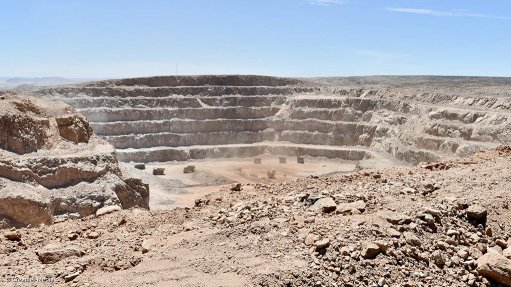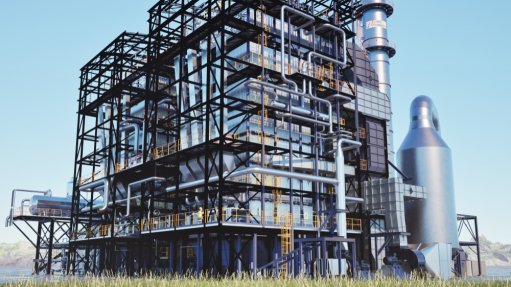Energy access improves, but international financial support needed to achieve SDG 7
Almost 92% of the world’s population now has basic access to electricity and, while this is an improvement since 2022, which saw the number of people without basic access decrease for the first time in a decade, more than 666-million people remain without access, indicating that the current rate is insufficient to reach universal access by 2030.
The lack of sufficient and affordable financing is a key reason for regional inequalities and slow progress, says the 'Tracking SDG 7: The Energy Progress Report 2025' produced by international organisations the International Energy Agency (IEA), the International Renewable Energy Agency (Irena), the UN Statistics Division, the World Bank and the World Health Organisation.
“To build on the achievements to date and avoid any further regressions on access to electricity and clean cooking owing to looming risks in global markets, the report calls for strengthened international cooperation of public and private sectors to scale up financial support for developing countries, especially in sub-Saharan Africa.”
Urgent actions required include reforming multilateral and bilateral lending to expand the availability of public capital; providing more concessional finance mobilisation, grants and risk-mitigation instruments; improving risk tolerance among donors; and putting in place appropriate national energy planning and regulations.
However, the report does show notable progress was made in different indicators, with the international financial flows to developing countries in support of clean energy growing for the third year in a row, growing 27% from 2022 to reach $21.6-billion in 2023.
“Despite this increase, only two regions in the world have seen real progress in the financial flows. To close the access and infrastructure gaps, we need strengthened international cooperation to scale up affordable financing and impact–driven capital for the least developed and developing countries,” says Irena director-general Francesco La Camera.
The report also reveals that the developing world received fewer flows in 2023 than in 2016, when commitments peaked at $28.4-billion. Despite gradual diversification, funding remained concentrated, with only two sub-Saharan African countries in the top five recipients.
Further, debt-based instruments drove most of the increase in international public flows in 2023, accounting for 83% in 2023, while grants made up only 9.8% of flows, the report shows.
Additionally, installed renewables capacity per capita continued to increase year-on-year to reach a new high of 341 W per capita in developing countries, up from 155 W in 2015, the report shows.
Meanwhile, the greatest growth in access between 2020 and 2023 occurred in Central and Southern Asia, with both regions making significant strides towards universal electricity access, reducing their basic access gap from 414-million in 2010 to just 27-million in 2023.
Regional disparities persist, indicating that particular support is needed for developing regions. In sub-Saharan Africa, which lags behind across most indicators, renewables deployment has rapidly expanded, but remains limited to 40 W of installed capacity per capita on average, which is only one-eighth of the average of other developing countries.
Eighteen of the 20 countries with the largest electricity access deficits in 2023 were in sub-Saharan Africa, the report adds.
Eighty-five percent of the global population without electricity access reside in the region, while four-in-five families are without access to clean cooking.
Further, clean cooking access is progressing but below the rates of progress seen in the 2010s, as efforts remain hobbled by setbacks during the Covid-19 pandemic, following energy price shocks, and debt crises.
Meanwhile, the annual report, which tracks progress towards Sustainable Development Goal (SDG) 7, highlights the role of distributed renewable energy, which is a combination of mini-grid and off-grid solar systems, in accelerating access, as the people remaining unconnected live mostly in remote, lower-income and fragile areas.
Cost-effective and rapidly scalable, decentralised solutions are able to reach communities in such rural areas, the report adds.
“Decentralised solutions are also needed to increase access to clean cooking. With an estimated 1.5-billion people residing in rural areas still lacking access to clean cooking, the use of off-grid clean technologies, such as household biogas plants and mini-grids that facilitate electric cooking, can provide solutions that reduce health impacts caused by household air pollution.”
More than two-billion people remain dependent on polluting and hazardous fuels, such as firewood and charcoal for their cooking needs, the report adds.
Further, in 2022, the global share of renewable-energy sources in total final energy consumption (TFEC) was 17.9% as TFEC continued to increase gradually, while installed renewable energy capacity reached 478 W per capita in 2023, indicating almost 13% growth from 2022.
However, progress is insufficient to meet international climate goals and SDGs, the report states.
Additionally, global efforts must address significant disparities. Despite progress in expanding renewables capacity, least developed countries and sub-Saharan Africa had only 40 W per capita in installed renewables capacity, compared to developed countries which had over 1 100 W installed.
“Despite progress in some parts of the world, the expansion of electricity and clean cooking access remains disappointingly slow, especially in Africa. This is holding back development and education opportunities.
“Greater investment in clean cooking and electricity supply is urgently required, including support to reduce the cost of capital for projects,” says IEA executive director Fatih Birol.
“As we approach the five-year mark to achieve the SDG7 targets, it is imperative to accelerate the deployment of electricity connections, especially in sub-Saharan Africa, where half of the 666-million people lacking access reside, says World Bank VP for infrastructure Guangzhe Chen.
“As part of the Mission 300 movement, 12 African nations have launched national energy compacts, in which they commit to substantial reforms to lower costs of generation and transmission, and scale up distributed renewable energy solutions. Initiatives such as this unite governments, the private sector, and development partners in a collaborative effort,” he says.
Article Enquiry
Email Article
Save Article
Feedback
To advertise email advertising@creamermedia.co.za or click here
Press Office
Announcements
What's On
Subscribe to improve your user experience...
Option 1 (equivalent of R125 a month):
Receive a weekly copy of Creamer Media's Engineering News & Mining Weekly magazine
(print copy for those in South Africa and e-magazine for those outside of South Africa)
Receive daily email newsletters
Access to full search results
Access archive of magazine back copies
Access to Projects in Progress
Access to ONE Research Report of your choice in PDF format
Option 2 (equivalent of R375 a month):
All benefits from Option 1
PLUS
Access to Creamer Media's Research Channel Africa for ALL Research Reports, in PDF format, on various industrial and mining sectors
including Electricity; Water; Energy Transition; Hydrogen; Roads, Rail and Ports; Coal; Gold; Platinum; Battery Metals; etc.
Already a subscriber?
Forgotten your password?
Receive weekly copy of Creamer Media's Engineering News & Mining Weekly magazine (print copy for those in South Africa and e-magazine for those outside of South Africa)
➕
Recieve daily email newsletters
➕
Access to full search results
➕
Access archive of magazine back copies
➕
Access to Projects in Progress
➕
Access to ONE Research Report of your choice in PDF format
RESEARCH CHANNEL AFRICA
R4500 (equivalent of R375 a month)
SUBSCRIBEAll benefits from Option 1
➕
Access to Creamer Media's Research Channel Africa for ALL Research Reports on various industrial and mining sectors, in PDF format, including on:
Electricity
➕
Water
➕
Energy Transition
➕
Hydrogen
➕
Roads, Rail and Ports
➕
Coal
➕
Gold
➕
Platinum
➕
Battery Metals
➕
etc.
Receive all benefits from Option 1 or Option 2 delivered to numerous people at your company
➕
Multiple User names and Passwords for simultaneous log-ins
➕
Intranet integration access to all in your organisation


















